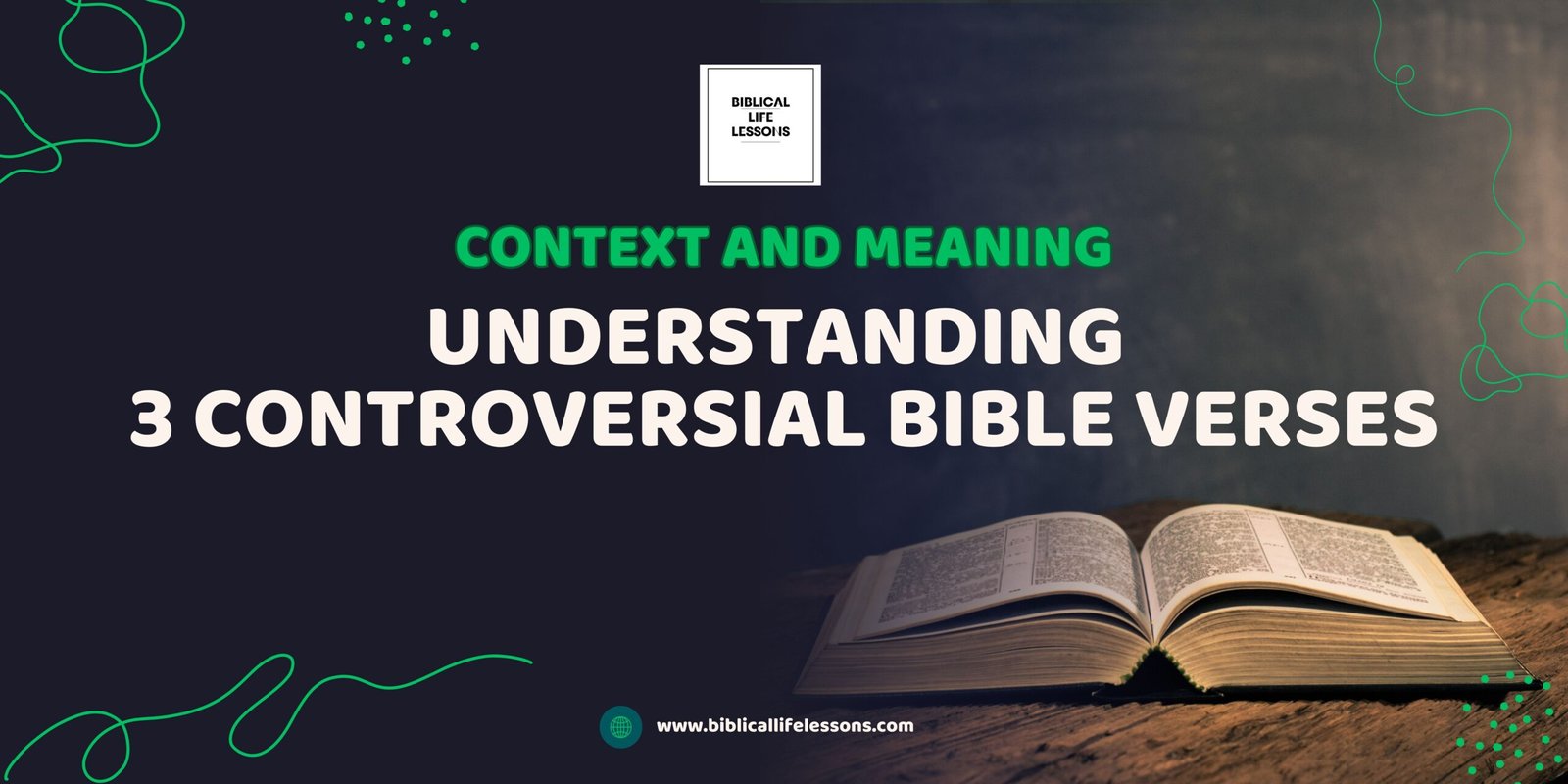The Bible is a deeply revered and ancient text that provides millions of believers guidance, wisdom, and comfort. However, it also contains verses that have sparked debate, confusion, and controversy over the centuries. Understanding these controversial passages requires careful examination of their context, original language, and intended audience. Here, we explore three of the most debated Bible verses and explain their meanings.
1. 1 Timothy 2:12 – Women in Leadership Roles
Verse: "I do not permit a woman to teach or to exercise authority over a man; rather, she is to remain quiet." (1 Timothy 2:12, ESV)
Context and Meaning: This verse is often cited in discussions about women’s roles in the church and leadership positions. At first glance, it seems to strictly prohibit women from teaching or holding authority over men, leading some to interpret it as a universal ban on female leadership within the church.
However, understanding the historical and cultural context is crucial. The Apostle Paul wrote this letter to Timothy, a young pastor in Ephesus, where false teachings were a significant issue. Some scholars argue that Paul’s instruction was specific to the situation in Ephesus, where certain women were spreading false doctrine. Rather than being a blanket rule for all churches at all times, Paul’s directive was a corrective measure for that specific context. Today, many denominations interpret this passage as addressing specific issues of order and not as a prohibition against women in leadership.
2. Matthew 10:34 – Jesus Bringing a Sword
Verse: "Do not suppose that I have come to bring peace to the earth. I did not come to bring peace, but a sword." (Matthew 10:34, NIV)
Context and Meaning: Jesus, known as the Prince of Peace, making a statement about bringing a sword instead of peace seems contradictory. This verse has puzzled many readers and is often misunderstood as promoting conflict and violence.
In context, Jesus is not advocating for physical violence but is speaking metaphorically about the divisive nature of His message. The “sword” symbolizes the inevitable division that occurs when people choose to follow Christ. His teachings would cause division even within families because following Him requires ultimate allegiance that sometimes conflicts with personal and societal loyalties. This verse highlights the cost of discipleship and the reality that choosing Christ can lead to difficult choices and opposition.
3. Leviticus 20:13 – Homosexuality
Verse: "If a man has sexual relations with a man as one does with a woman, both of them have done what is detestable. They are to be put to death; their blood will be on their own heads." (Leviticus 20:13, NIV)
Context and Meaning: This verse is one of the most controversial passages regarding homosexuality, often cited in debates over LGBTQ+ issues within the Christian community. The command appears in the context of the Old Testament Law given to the Israelites, which includes many regulations that seem harsh or outdated to modern readers.
To understand this verse, it’s essential to consider the broader context of Levitical laws, which were part of the covenant between God and Israel. These laws were meant to set Israel apart from other nations and maintain purity within the community. Today, many Christians believe that these Old Testament laws were specific to the cultural and religious context of ancient Israel and do not directly apply to Christians under the New Covenant established by Jesus.
Furthermore, interpretations of this passage vary widely among Christian denominations. Some hold a traditional view that sees this verse as condemning all same-sex relations, while others believe it addresses specific practices within the context of idolatry and temple prostitution, rather than consensual, committed relationships.
Conclusion
These controversial verses highlight the importance of context, cultural background, and careful interpretation when reading the Bible. While the verses can appear harsh or confusing on the surface, deeper study often reveals a more nuanced understanding. Readers must approach the Bible with an open mind, considering historical context and seeking wisdom from various perspectives.
Understanding these complex passages can help believers apply biblical principles in ways that reflect God’s love, justice, and truth in their lives today. The Bible, with all its complexities, continues to be a source of profound wisdom, requiring thoughtful engagement and a heart open to learning.
Subscribe for Daily Email Devotionals









